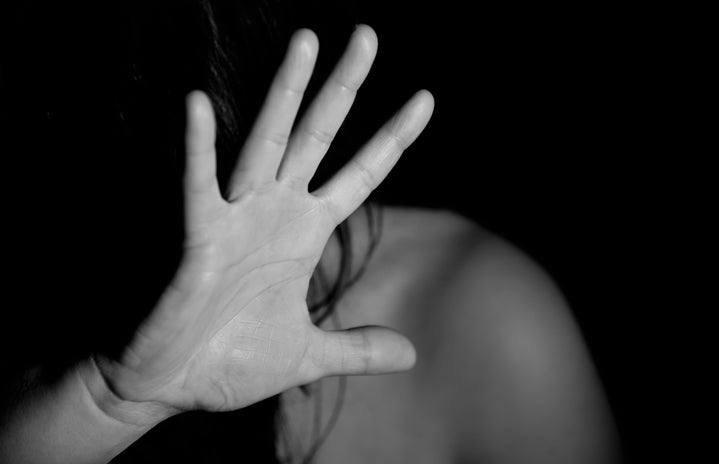The year is 2009. “King for a Day” by Pierce the Veil ft. Kellin Quinn is playing too loudly as you apply the black eyeshadow that your mom hates so much, but it’s OK because your parents just don’t get you.
If this was you, then like many other angsty teenagers, you were probably a self-identified ‘emo kid.’ But what does it mean to be an emo kid? Is it really just a phase, or do the emo kids of the 2000s still exist today? Turns out, the answer is pretty different for each person.
Sarah Ouimet, a 20-year-old political science major, was adamant that being emo was just a phase. From the ages of 12-14, she spent time at the legendary Warped Tour, catching guitar picks from her favourite bands.
“A lot of the joy I got from being an emo kid is that people knew I was different,” she said. “I liked that people could look at me and immediately tell that I wasn’t like the other girls.”
Ouimet, who grew up in a very small town close to the Quebec border, says she’s embarrassed now when she looks back at photos from that time (though she admits you’d likely be hard pressed to find any since she’s deleted them all).
She began to exit her emo phase around 15-years-old as she realized “that other kinds of music besides pop-punk, rock and metal weren’t the worst things to ever exist.” Although even now Ouimet admits she still enjoys the music she used to listen to, and feels nostalgic when she does.
“I am well past that phase in my life and hopefully it stays that way forever,” she said.
However, not everyone feels as strongly as Sarah Ouimet.
Natalia Amoroso, a 20-year old film student, said she feels she never stopped being an emo kid, as she still listens to the music now, and even went to see Pierce the Veil in concert last year.
“I think there’s definitely some kind of public shame to it,” she said. “You’re almost ashamed to say you like something because of what it stands for to other people.”
For Amoroso, being emo means having a centralized enjoyment of the same type of pop-punk music and totally encompassing “being upset sometimes because it’s OK.”
“It’s made me who I am,” she said. “Being able to be confident in how I feel has a lot to do with who I listened to and who I grew up admiring.
Her Campus at Ryerson’s very own Elizabeth Chokler as once an emo kid too, though it may be hard to tell by looking at her now.
For her, being emo revolved around both the music and a struggle with mental health, she said. When she didn’t quite fit in with the mainstream community, Chokler turned to websites like Tumblr, where she found a community of other emo kids.
In Grade 12, she ditched her side bangs, dark clothing and band merchandise when her mental health improved. “I began taking care of myself more and more,” she said.
Chokler, 20 now, has more “fluffy” interests, like literature, the environment, and is even in a sorority, which she says takes up most of her time.
For others still, like Duaa Zahra, a 19-year-old Ryerson student, who said being emo was a way to release teen angst and quietly rebel against strict parents.
Beginning at 13, Zahra wore all black and often sported dramatic black eyeliner. She found solace in pop-punk lyrics. “Overwhelming emotions as a young person made it very easy to relate to the music,” she said.
“Teenagers think life sucks and as they get older, they realize life doesn’t suck and problems aren’t as big,” she said.
Zahra isn’t quite sure what ended her emo phase but said she “took a 180” as she changed her aesthetic and became a theatre major.
While everyone interviewed has different opinions of the emo culture and different views on their emo identity entirely, these women all have one thing in common. As young people, they were able to express their tumultuous emotions through the very thing that ties them all together: the music. Perhaps whether being emo is a phase or not, isn’t important, but rather it is the fact that the music in the emo community provided a safe outlet for complicated teenage emotions.
It just so happened that the aforementioned safe space could usually be found in Hot Topic’s all across the country.


